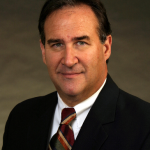 By Barry Russell, President, Independent Petroleum Association of America (IPAA)
By Barry Russell, President, Independent Petroleum Association of America (IPAA)
IPAA held a meeting on the Endangered Species Act in Fort Lauderdale, Florida this week. Representatives from IPAA’s member companies and other industry groups came together and discussed the implications of the ESA for the industry and strategized on the best way to prevent species’ listings and combat regulatory uncertainty surrounding a listing.
Nancy Macan McNally, Executive Director of the National Endangered Species Act Reform Coalition (NESARC), opened up the day of presentations by giving a political perspective of ESA. Nancy has been executive director of NESARC since its inception. The coalition formed as a group who wanted to give another face to the debate around reauthorizing ESA. Although they have never successfully managed to encourage lawmakers to reauthorize ESA, NESARC has remained a substantive coalition and transitioned from a Hill-based reform effort to a regulatory reform effort. NESARC plans to pursue ESA reform efforts that include ending citizen suit and environmental lawsuit abuse, streamlining section 7 consultation, guaranteeing peer review and transparency in ESA implementation, and improving listing and critical habitat designation process. IPAA Manager of Government Relations, Kristen Lingley, is on NESARC’s board of directors and we look forward to working with them to achieve manageable changes to the ESA with a diverse group of stakeholders.
The next panel at the meeting focused on developing coalitions. Tom Ward, Vice President of Legal Advocacy, at the National Association of Home Builders (NAHB), Ryan Yates, Associate Legislative Director of Public Lands at the National Association of Counties (NACO), and Mike Catanzaro, Managing Director at FTI Consulting and former energy advisor to Speaker Boehner presented on the best ways to work together. From this panel, we learned that industry is not alone in ESA battles. Tom described NAHB’s current and previous litigation on ESA issues. Ryan Yates described the most effective ways to engage with local county governments in an effort to get ahead of species listings. Finally, Mike Catanzaro described the merits of engaging Members of Congress early in the listing process in order to ensure they can adequately and accurately assist in the issue.
Our final presenter focused on conservation agreements. Kent Holsinger, founder of Holsinger Law presented a historical perspective of conservation agreements. Kent gave a through presentation on the background of conservation agreements, and according to his numbers, as of last year, the FWS had only entered into 12 agreements. Using the Gunnison sage grouse as an example, Kent explained how the devil is always in the details. FWS has an extensive conservation agreement already in place on the species, yet that work goes unnoticed and, despite these efforts, FWS is currently proposing to list the species as endangered.

